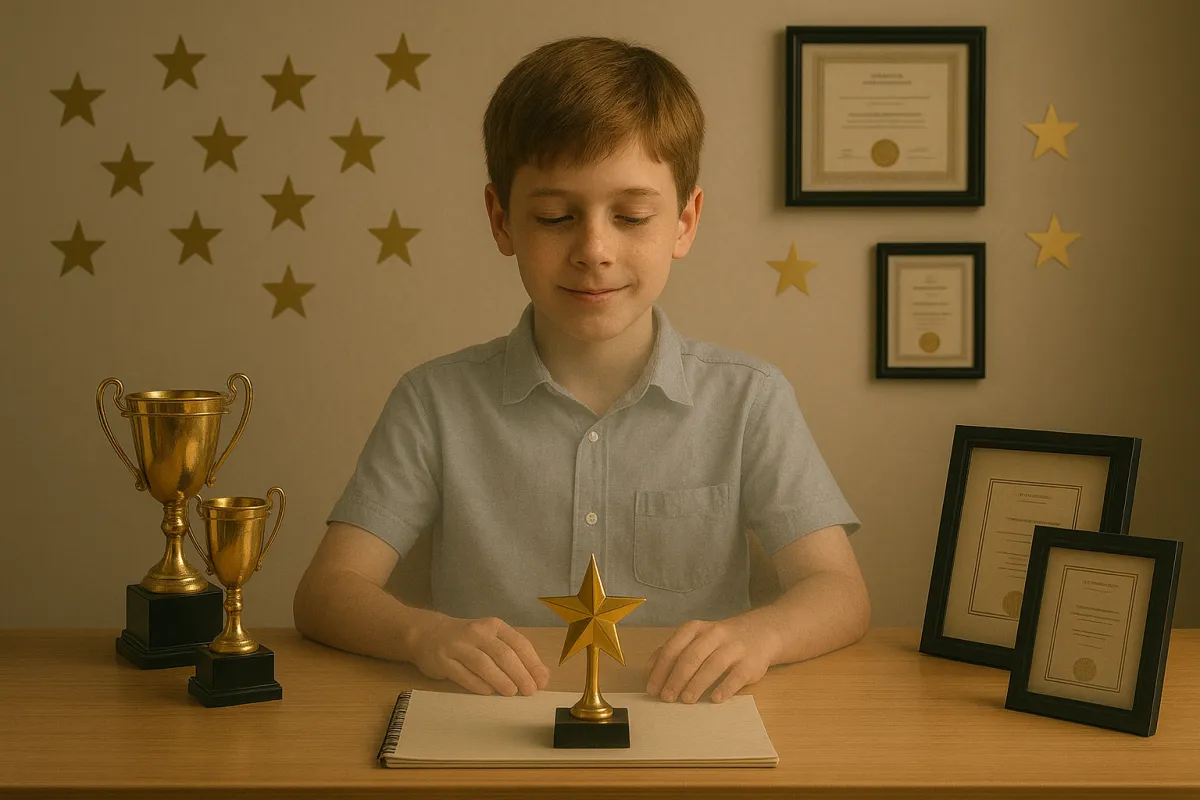
When Praise Becomes Pressure
When Praise Becomes Pressure: How Adults Accidentally Teach Perfectionism
By Krista Fee
We all want to raise confident kids.
We praise their effort. Their manners. Their achievements.
We tell them how proud we are when they excel.
We say things like:
“You’re so responsible.”
“You’re the mature one.”
“You always make us proud.”
And we mean it.
But what if the words meant to build them up are quietly becoming a weight they don’t know how to put down?
What if the praise becomes pressure?
The Performance Trap
Some kids don’t feel like they’re allowed to mess up.
Not because anyone explicitly said so—
but because the only time they received connection, affection, or praise…
was when they were succeeding.
Straight A’s. Helping with siblings. Being “easy.”
Keeping it together.
Over time, performance becomes protection.
Perfection becomes identity.
And failure? Failure becomes threat.
Not to their grade point average.
To their worth.
What “You’re So Mature” Can Really Mean
When a child hears “you’re so mature for your age,” it’s often intended as a compliment.
But sometimes, it’s code for:
“You don’t need as much care.”
“I can depend on you emotionally.”
“You’ve learned to suppress your needs—and I benefit from that.”
Especially for trauma-impacted children, the label of “maturity” can actually be a mask.
They’ve grown up fast because they had to, not because they were ready.
They’ve learned that showing vulnerability invites discomfort, punishment, or shame—so they stay quiet, stay helpful, stay high-performing.
Until they can’t.
The Invisible Cost of Praise Without Presence
A child praised for being the best may never feel safe being messy.
A student constantly awarded for leadership might hide their anxiety or sadness.
A teen always told they’re “so good” may struggle to admit when they feel bad.
We unintentionally teach them:
That love comes with expectations.
That value is earned through doing, not being.
That mistakes are unacceptable—even dangerous.
They might appear “fine” on the outside, but inside they’re holding their breath.
All the time.
Where This Gets Real
If we zoom out, we begin to see a pattern:
The over-functioning kid who’s praised for being “so responsible” becomes the adult who can’t rest without guilt.
The child who learned they could only receive love through success becomes the adult terrified of failure—who masks struggle until it implodes.
And sometimes…
They become the child who stops reaching out.
The one who doesn’t feel allowed to fall apart.
The one we talk about in the past tense, wondering why no one saw the signs.
Questions to Sit With
When was the last time I praised a child for how they felt, not what they did?
Have I ever expected “maturity” from a child who was just doing their best to cope?
Do the kids in my care know they can be loved when they’re messy, loud, scared, or struggling?
What do I model when I make mistakes? Do I apologize? Do I show self-compassion?
And maybe the most important one:
Would this child still feel safe and loved if they failed? If they broke down? If they stopped performing?
One Small Shift Today
Try this:
Instead of “You’re so good,”
try “I love seeing who you are.”
Instead of “I’m proud of your grade,”
try “I noticed how hard you worked.”
Instead of “You’re always so strong,”
try “It’s okay to not be okay around me.”
Let them know that love isn’t conditional.
That worth isn’t tied to gold stars.
That they are not their achievements.
Building Something Better
At RISEUP and through our KidSAFE™ program, we see the connection between early perfectionism and later burnout, shutdown, anxiety, and even suicidal ideation. If you would like to know more Connect with Krista for a free consult.
When we talk about child resilience, we’re not just talking about grit or achievement.
We’re talking about the freedom to be whole.
Messy. Brilliant. Confused. Emotional.
And still… deeply worthy.
